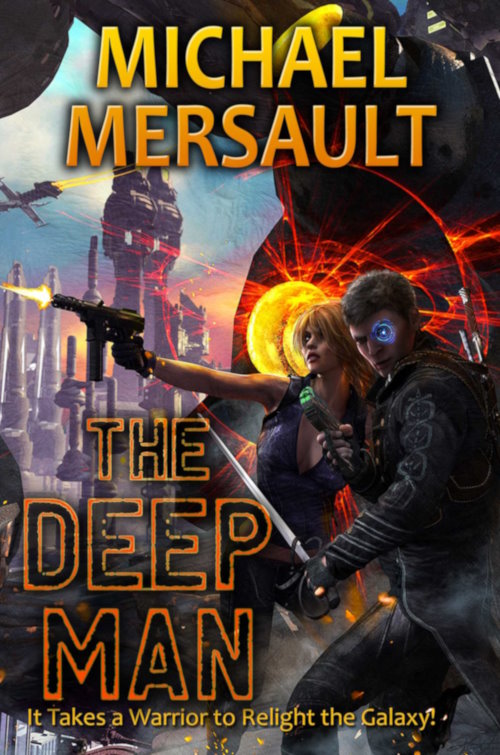The Deep Man (The Deep Man #1), by Michael Mersault
 There is a type of sci-fi that I will probably never hate, even if it's corny as hell, and that's space opera. Spaceships, interesting yet cliché characters, military honor, strong men, sexy women, that kind of stuff. Yet, having just read another underwhelming military space opera, I was not happy to start reading The Deep Man, as I thought it would be more of the same. Maybe less. I mean, it started with a human space empire, nobility families bound by honor, space navies and so on, but focused so much on the various aristocratic rituals in the beginning that I thought it's going to be just as average, only more boring.
There is a type of sci-fi that I will probably never hate, even if it's corny as hell, and that's space opera. Spaceships, interesting yet cliché characters, military honor, strong men, sexy women, that kind of stuff. Yet, having just read another underwhelming military space opera, I was not happy to start reading The Deep Man, as I thought it would be more of the same. Maybe less. I mean, it started with a human space empire, nobility families bound by honor, space navies and so on, but focused so much on the various aristocratic rituals in the beginning that I thought it's going to be just as average, only more boring.
But as I was reading the book I started to warm up to the it and the writing also improved, becoming more focused on action, story and character development. I enjoyed it enough that I immediately started looking for the sequel - which is not easy, because apparently no one heard of this. Let's face it, it's a fun book, nothing great, but it reminded me of David Feintuch and a little of Herbert by some of the ideas inside.
What I didn't like was the title. It refers to a sort of psychic conditioning of nobles to find "the real man" inside them, kind of like the Gom Jabbar trial in Dune. So when I saw that, I was really looking forward to some form of exploration of the strength of will and identity. Only most of the book is not about that at all, so the title felt misleading. Also it started slowly enough that I almost didn't want to continue reading.
Some interesting ideas in the book, though, barely touched upon yet. Already mentioned the Deep Man, but also the system of government divides the population into full citizens and demi-citizens. The full citizens have to pass some tests and fulfil some conditions to demonstrate they can take responsibility for their actions and shoulder the risks of true freedom. The demi-citizens are not slaves or anything, they are just protected by the state from themselves and others. For example two citizens can declare a duel and fight to the death for some perceived honor slight, yet a citizen cannot harm a demi-citizen. Same for drugs or anything that might be perceived as dangerous or risky.
I found the idea fascinating. Basically what we now do with minors, only just passing a certain age is not the (only) requirement. Conversely, it is taken for granted that a citizen is fully responsible for their actions, but also more free to take them because of it. And it's not just empty elitism I am taking about, because the book also explores the abuses and decadent aristocratic corruption that comes from it. If you think about it, isn't the same with society now? Adults being complacent, corrupt and uncaring while holding all the power and kids ineffectual protesters against a world they don't yet fully understand?
Michael Mersault is a competent writer and I felt I knew where his influences for this book came from - and I approve. This is one of those books that you read for fun, but it hides some unexpected depth from place to place and I enjoyed that.
Comments
Be the first to post a comment